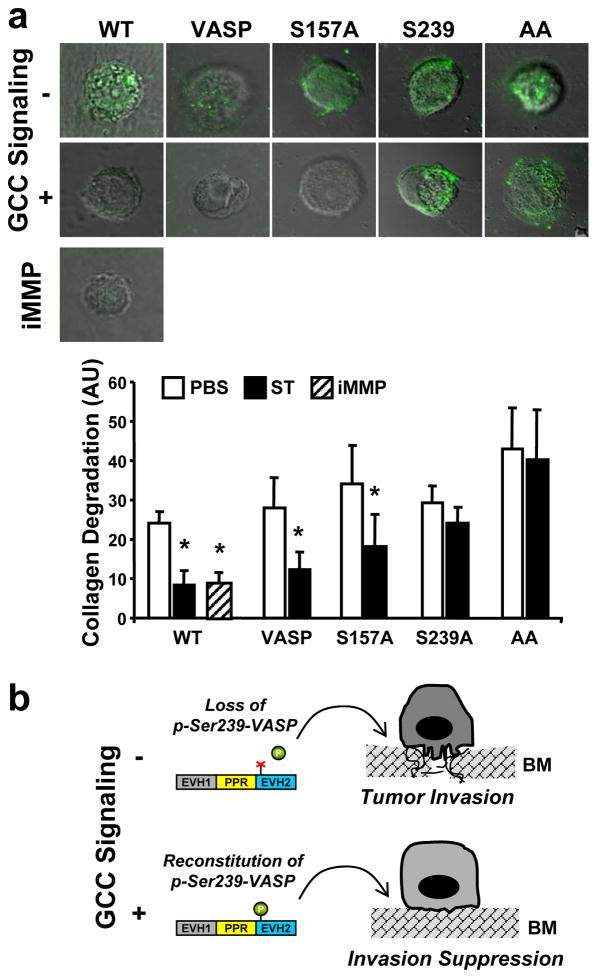Fig. 6.
VASP Ser239 phosphorylation inhibits the cleavage of DQ-collagen IV by colon cancer cells. (a) T84 cells stably-expressing the indicated MSCV-driven genes (VASP, the control; VASP-S157A, S157A; VASP-S239A, S239A; VASP-AA, AA) were treated for 24 h with PBS, 1 μM ST or 60 nM of the broad MMP inhibitor GM6001 (iMMP), imaged and analyzed by confocal microscopy for quantification of DQ-collagen IV degradation as detailed in Material and Methods. Photographs (top) are merged DIC and confocal microscopy images. Results (bottom) are expressed as arbitrary units (AU) of the fluorescent signal from the cleaved collagen product. WT, wild-type T84 cells. *, P < 0.05, versus respective PBS control. (b) Proposed role of VASP in colorectal carcinogenesis. During tumor progression, VASP phosphorylation at Ser239 (p-Ser239-VASP) is reduced, reflecting a dysregulated GCC pathway with interruption of cGMP-mediated signaling, which promotes the formation of migratory membrane protrusions and cancer cell invasion. Reconstitution of GCC and cGMP signaling, in turn, provides a unique therapeutic opportunity to restrain the invasive tumor cell shape and prevent metastasis.

